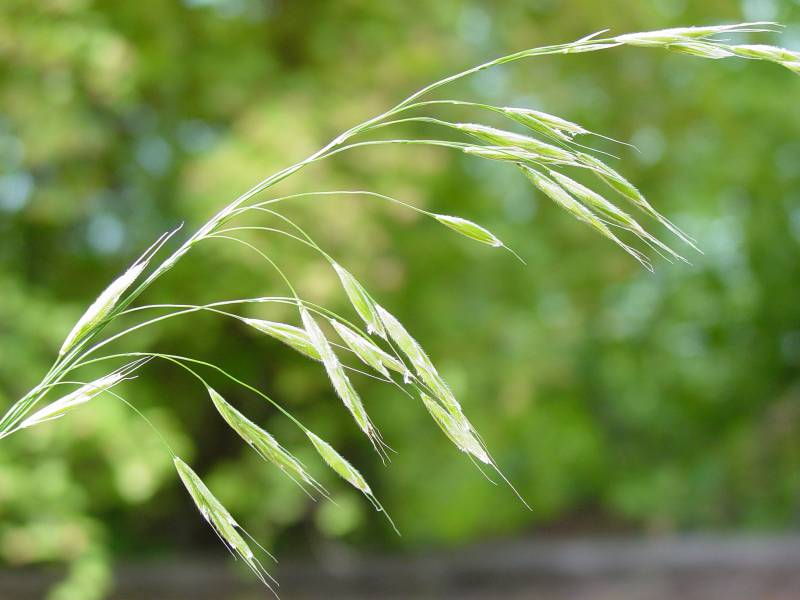Bromus arizonicus
Bromus vulgaris
Columbian brome
Sheaths closed, often with a few long hairs at the throat;
ligules 2-3 mm. long;
blades lax, flat, 5-10 mm. broad.
Inflorescence an open panicle 10-18 cm. long, the slender branches drooping;
spikelets 5- to 7-flowered, 20-28 mm. long; first glume 5-8 mm. long, 1-nerved, the second 7-10 mm. long, 3-nerved;
lemmas pubescent along the marginal nerves but glabrous toward the tip, 8-13 mm. long, with awns 3-8 mm. long from the bifid apex;
anthers exerted.
Bromus arizonicus
Bromus vulgaris
Occurring on both sides of the Cascades crest in Washington; British Columbia south along the coast to northern California, east to Alberta, Montana and Wyoming.
- Local floras:
BC,
CA,
OR,
WA
- Local Web sites:
CalFlora,
CalPhotos,
Flora NW,
PNW Herbaria
WildflowerSearch
iNaturalist (observations)
USDA Plants Database
- LBJ Wildflower Center
- SEINet
- Plants of the World Online
- Encyclopedia of Life
- Wikipedia
- Google Image Search


